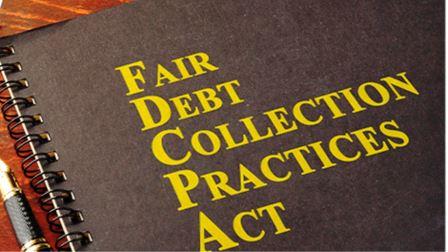The debt collection industry is set to undergo significant changes in 2024 with the implementation of new federal rules and regulations aimed at modernizing debt collection practices and enhancing consumer protections. The most notable development is the Consumer Financial Protection Bureau’s (CFPB) Debt Collection Rule, which will take effect in 2024.
CFPB Debt Collection Rule
The CFPB’s Debt Collection Rule is a comprehensive set of regulations that clarify and expand upon the existing Fair Debt Collection Practices Act (FDCPA). This rule aims to address evolving consumer debt issues, industry changes, and the impact of technology on debt collection practices.
Key Provisions of the CFPB Debt Collection Rule
- Limited Content Messages: Debt collectors are required to leave limited content messages when contacting a person about a debt. These messages must include minimal information to avoid disclosing the debt collection purpose to third parties.
- Call Frequency Limitations: Debt collectors are prohibited from calling about a debt more than seven times within a seven-day period. Additionally, if the debt collector speaks with the person about the debt, they cannot call again for seven days.
- Electronic Communications: Debt collectors can only email or text a person if the person has previously used that email address or phone number to communicate with the debt collector or creditor, and has not opted out of such communication.
- Time and Place Restrictions: Debt collectors cannot contact a person about a debt before 8:00 am or after 9:00 pm in the person’s time zone.
- Itemization Date Requirement: Debt collectors must provide an itemization of the account balance starting from a specific “itemization date,” which can be chosen from five options, such as the date of the last payment or the date of the final account statement.
- Validation Period: Debt collectors must provide a 30-day validation period, plus an additional five days for delivery, during which the person can request debt validation or dispute the debt.
- Debt Identification Assistance: Debt collectors must provide information to help the person identify the debt, including the creditor’s name, account number, and an itemization of the debt.
- Time-Barred Debt: Debt collectors are prohibited from threatening or pursuing lawsuits for time-barred debts, where the statute of limitations has expired.
- Record Retention: Debt collectors must retain records, including documents and call recordings, as evidence of compliance with the new rule for three years after the last collection activity.
State Policy Changes
In addition to the federal rule, several states are implementing new consumer protection laws related to debt collection in 2024. These include limits on junk fees, restrictions on imprisonment for debt, and opt-out provisions from state bank rate exportation.
For example, California has around a dozen new consumer laws taking effect, while Colorado has significant legislation limiting debt collection practices.
FTC Enforcement and Recommendations
The Federal Trade Commission (FTC) continues to actively enforce the FDCPA and take action against abusive and deceptive debt collectors.
The FTC has also recommended that Congress and states modernize debt collection laws to address changes in consumer debt, the industry, and technology impacting consumers and collectors.
A 2010 FTC report highlighted flaws in debt collection litigation and arbitration processes, recommending major reforms.
CFPB Rulemaking on Data Privacy and Big Tech
While not directly related to debt collection, the CFPB is expected to propose new rules in 2024 related to data privacy, restricting the sale of consumer financial data, and supervising big tech companies entering the payments space.
These rules could impact how debt collectors obtain and use consumer data for their operations.
Impact on the Debt Collection Industry
The new debt collection rule and related regulations will have far-reaching implications for the debt collection industry, making their work more complex and challenging. Debt collectors will need to adapt to the expanded information requirements, communication restrictions, and compliance obligations imposed by these changes.
While the new rules aim to protect consumers from abusive and deceptive practices, they may also increase operational costs and compliance burdens for debt collectors. However, these measures are necessary to ensure fair and transparent debt collection practices in the modern era.
Conclusion
The debt collection landscape is set to undergo a significant transformation in 2024, with the implementation of the CFPB’s Debt Collection Rule and various state-level consumer protection laws. These changes will enhance consumer protections, address evolving industry practices, and modernize debt collection regulations to align with technological advancements.
Debt collectors will need to carefully navigate the new requirements, including communication restrictions, validation periods, and record-keeping obligations. Compliance with these regulations will be crucial to avoid penalties and maintain ethical and transparent debt collection practices.
Ultimately, the new debt collection rules aim to strike a balance between protecting consumer rights and ensuring fair and responsible debt collection practices, fostering a more equitable and transparent financial system for all stakeholders involved.
